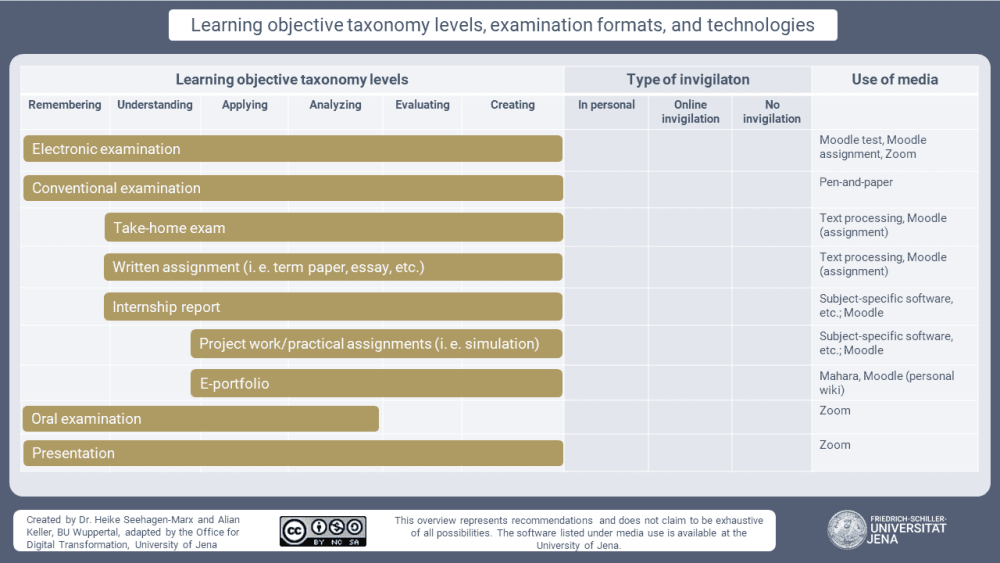
Information on digital examinations at the Friedrich Schiller University of Jena
Schreibtisch mit Laptop und Büchern. Im Vordergrund eine Glühbirne, die Icons für digitale Bildung umgibt.
Would you like to load external content
[https://www.elearning.uni-jena.de/en/taxonomylevels-examformats]?
Yes, please load external content.
[https://www.elearning.uni-jena.de/en/taxonomylevels-examformats]?



